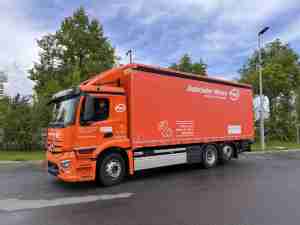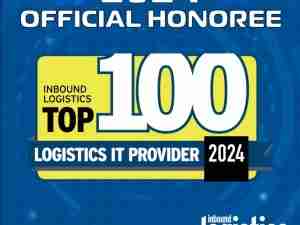'Around the world there are tens of millions of trucks in circulation, and still more drivers who hit the roads to keep supermarkets, stores, factories, hospitals, schools and businesses supplied with all kinds of goods,' Moller says. 'People who benefit from this vast transport network aren't interested in how goods get there ' they just expect the products to be available at low cost, where and when they are ready to purchase them.'
Moller points out that while consumers might pay more for premium products, which feature higher grades of raw materials, or more highly refined manufacturing processes, few if any, think about the delivery process. As a result, wholesalers and retailers turn to logistics and transport experts to move the goods and meet customer expectations for cost and efficiency. The domestic transport industry has largely focused on achieving economies of scale ' enabling specialists with large assets (trucks & warehouses) to provide transportation, storage and logistics expertise at a fraction of the cost it would take individual wholesalers and retailers to do themselves.
'So why are many transport and logistics providers running their own IT systems when it's safer, cheaper and more efficient to take advantage of technology solutions which are hosted in 'the cloud?' asks Moller. 'For the same reasons that it doesn't make sense for most of your customers to own and run their own fleets, it probably no longer makes much sense for your business to own and run your IT systems.' Consider what would happen if your customers insisted on owning and running their own logistics fleet, and what kinds of mistakes they would make in attempting to purchase the most appropriate vehicles and secure the right skills. Chances are they would end up with a fleet with excess capacity and a whole lot of staff with not enough to do - almost certainly it would be a less efficient and more costly operation with an inferior service to what your organization is able to provide today,' says Moller. 'Running your own internal IT systems versus outsourcing is equivalent to the difference between a supplier organizing its own transport as opposed to using the services of a domestic transport provider.'
Many of the larger domestic transport companies have invested significantly in creating an internal IT team because in the past, the only way to access productivity gains offered by computer systems was to spend a lot of money buying and constantly upgrading hardware; however, cloud computing has changed all of that. 'The cloud may sound mysterious and magical, and yet it is as straight forward as the service provided by most domestic transport companies,' Moller says. 'Companies that provide cloud services have simply purchased assets (IT infrastructure hardware and software) with greater capacity, in bigger quantities at lower unit costs. They then employ specialists who construct and provide superior services relying on economies of scale to deliver their business model.'
Cloud computing delivers data storage, processing power and software provided as a service, rather than as a good that needs to be purchased and maintained. Because of this, there is no longer any need to worry about what system to purchase, which version to implement, determining when to upgrade and how to attract and retain the right IT staff. More importantly, with the use of cloud computing, there is no longer any need to pay for extra headspace or down time, and you do not need to worry about disaster recovery systems to keep your business running when disaster strikes, points out Moller.
'In actual fact your data is far more secure in a tier 3 or 4 data center, with multiple power sources and









